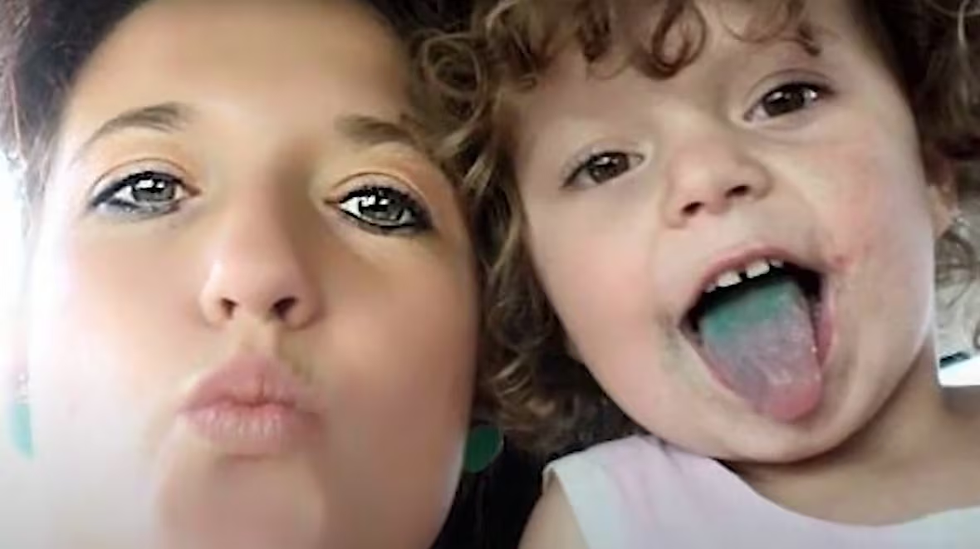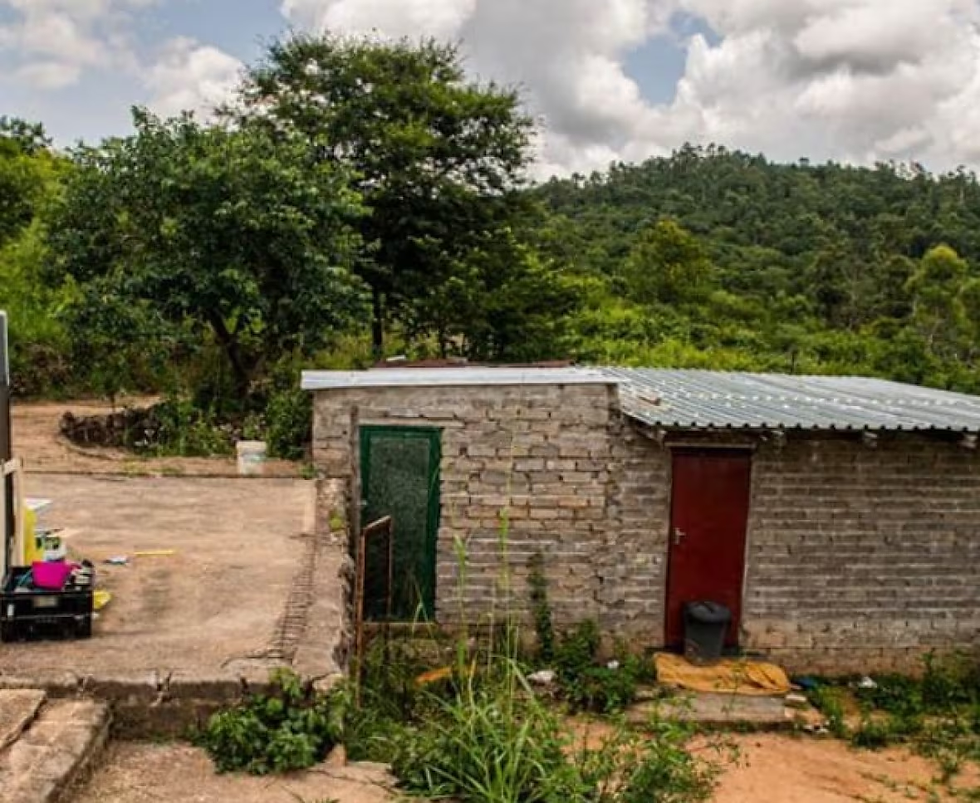She can't wait to wrap her arms around her adopted great-niece in Canada after a 4-year fight
- Feb 2, 2024
- 5 min read
Canada·New
Legal issues kept 10-year-old in South Africa from B.C. family, but they never stopped fighting
Yvette Brend · CBC News · Posted: Feb 02, 2024 10:01 AM EST | Last Updated: 30 minutes ago
Lisa Pyne-Mercier and her great-niece, Ryleigh Ridland. Though Pyne-Mercier was named the girl's legal guardian after her mother died in South Africa two years ago, but Ryleigh still hasn't been able to join her in Canada. (Submitted by Lisa Pyne-Mercier)
After an almost four-year fight, a 10-year-old girl stuck in South Africa whose mother died has won the right to apply for permanent residency in Canada on compassionate grounds.
Ryleigh Ridland's great-aunt has spent four years fighting to adopt her great-niece and bring her to Canada — ever since she was discovered struggling to survive on a remote South African farm property — all alone near her mother's body for about a week.
LIsa Pyne-Mercier, 53, who lives in Shawnigan Lake, about a 45-minute drive north of Victoria, still can't believe she could be bringing home her adopted child by spring.
"Is this real? Is this real?" she keeps asking.
Pyne-Mercier got a surprise notification from Immigration, Refugees and Citizenship Canada on Jan. 30 on behalf of the child informing her that her application for permanent residence in Canada was almost complete. It listed steps to follow within 30 days. She says it perplexed her so she called her lawyer and he started congratulating her.
She told CBC the sudden change in plans was jarring. After nearly four years of legal wrangling, Pyne-Mercier had been preparing for the next step in her fight for Ryleigh: A Feb. 29 judicial review in a federal court in Vancouver to reassess the decision Ministry of Citizenship and Immigration's 2023 decision to turn down the girl's application to emigrate.
A Canadian is fighting to bring her nine-year-old great-niece to Canada, after being named the child's legal guardian when her mother died. But she says the girl is being left in limbo because of Canadian immigration rules. Video here.
CBC produced a series of stories about Ryleigh's case in 2023. It's not clear why the government decided to forgo the hearing into the matter and grant her permanent resident status.
When Ryleigh was nine, Pyne-Mercier was named legal guardian in a complex international child custody case that left the girl living with a foster family in South Africa while blood relatives battled for custody from thousands of kilometres away.
Alone, struggling to live
It all started when Pyne-Mercier says a teacher made a grisly discovery when she went to check on Ryleigh on Jan. 9, 2021. Ryleigh's 31-year-old mother, Jackie Ridland, had died at least eight days earlier, according to authorities. The traumatized girl, then seven, was struggling to survive alone in 40 C heat on a rural property near the South African town of Tzaneen, about 360 kilometres northeast of the administrative capital of Pretoria.
The body was so decomposed, it was unclear exactly why she had died, but authorities believe she died of natural causes.
Jackie Ridland and her daughter, Ryleigh, pose during a video chat with her family. Jackie, who lived with her daughter in South Africa, died on their rural property in January 2021. (Submitted by Lisa Pyne-Mercier)
Ryleigh was taken to hospital and treated for malaria, dehydration and malnutrition, then placed in foster care.
After that, Pyne-Mercier spent thousands of dollars on a legal push to win guardianship and full parental rights in South Africa so Ryleigh could come join her in Canada, but the High Commission of Canada in South Africa turned down Ryleigh's applications for permanent resident status in Canada and a study permit in January 2023.
Denied access to Canada
The High Commission ruled that Ryleigh didn't meet the definition of an orphan under Canadian law as her biological father remains alive. Under South African law, however, she was considered an orphan due to abandonment, as her father had waived all parental rights to his child after their divorce in 2016.
The small brick shack where Ryleigh Ridland was found in January 2021 with her deceased mother on their rural property near the South African town of Tzaneen, about 360 kilometres northeast of the administrative capital of Pretoria. (Submitted by Lisa Pyne-Mercier)
Toronto immigration lawyer Michael Battista took over the case in 2023. He sent CBC a letter this week after news came that Ryleigh could finally apply for permanent residency.
"I was thrilled. We were thrilled. We worked on this case long and hard," he said. "It really restored our faith in the humanity of the system."
Battista used a section of Canada's Immigration and Refugee Protection Act to try and get around the Hague Convention — rules put in place to protect children adopted internationally — and bring Ryleigh to Canada on humanitarian and compassionate grounds.
"You're, in effect, throwing yourself on the mercy of the decision maker," Battista said.
"That this is a sufficiently compelling case to allow Ryleigh to come here, even though all the technicalities of international adoption have not been met."
Pyne-Mercier with her arms around her family, Ryleigh Ridland in the centre, during a visit to South Africa. (Submitted by Lisa Pyne-Mercier)
Battista believes it helped that Pyne-Mercier adopted the child in a South African court in August 2023. He told CBC that he believes that media coverage also helped get this child's story heard.
Battista spent the past year arguing that the further step of International adoption was unnecessary as it is prohibitively expensive and an onerous hurdle. He estimated it would have cost the family about $180,000 and forced Pyne-Mercier to live in South Africa for six months.
"We are thankful that a visa officer in South Africa agreed with us," he said.
Jackie Ridland holds a newborn Ryleigh in South Africa. (Lisa Pyne-Mercier )
But that process took a year. Battista said this case highlights the need to give some thought to policy solutions that can help both protect a vulnerable child but also expedite reunification with caregivers.
"That's a year in a child's life. That's a long time for her to be in foster care when there was a willing and able Canadian that could take care of her," he said.
A new life. A new name
Pyne-Mercier says she won't tell her great-niece she's won a new life in Canada until she has a passport and a new birth certificate with that new name she helped choose: Leigh Pyne-Mercier.
She hopes that will help her adopted child shed some of the trauma of her past.
Ten days before Christmas, Ryleigh wrote to Canada's Immigration Minister Sean Fraser to ask for help. (Submitted by Lisa Pyne-Mercier)
"I think it will hit home when she's in front of me … on Canadian soil and she's in my arms. I think the reality of what's happening will blow my mind," said Pyne-Mercier said from Shawnigan Lake, where she lives with her family.
Her voice broke explaining how she will show Ryleigh an official Canadian passport and explain what it means.
"We can get on a plane. We can be a family," she said.
"When she's here in my arms on Canadian soil. That's when it's going to be like — pinch me!"
According to an October 2022 letter sent to Pyne-Mercier from a South African social worker, it had been determined that Ryleigh, seen here in South Africa, was ostensibly an 'orphan' and Pyne-Mercier was her legal guardian. (Submitted by Lisa Pyne-Mercier)
ABOUT THE AUTHOR
CBC journalist
Yvette Brend works in Vancouver on all CBC platforms. Her investigative work has spanned floods, fires, cryptocurrency deaths, police shootings and infection control in hospitals. “My husband came home a stranger,” an intimate look at PTSD, won CBC's first Jack Webster City Mike Award. Got a tip? Yvette.Brend@cbc.ca












Comments